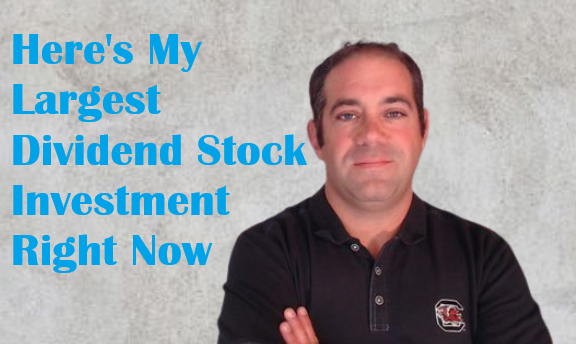One of the more memorable quotes about dividend investing comes from Raymond DeVoe Jr., who wrote a long-running financial newsletter known as The DeVoe Report. Because yields that are significantly higher than the broader market typically imply much greater risk, DeVoe argued that "more money has been lost reaching for yield than at the point of a gun."
Investing legend Warren Buffett agreed with DeVoe's sentiment and said as much in his 2011 letter to shareholders. He used the comment to explain why Berkshire Hathaway prefers to hold its cash in U.S. Treasuries rather than in other short-term securities.
Chasing high-yield stocks, in particular, more often than not results in not only an eventual dividend cut or suspension but also in investors suffering significant capital losses when a cut lowers the share price.
However, there are exceptions. Realty Income (O +0.84%) and Vici Properties (VICI +0.02%) are two real estate investment trusts that do a great job of ignoring the yield-chasing truism thanks to proven business models and sustainable payout ratios. Let's find out a bit more about these two stocks.

Image source: Getty Images.
1. Realty Income
Realty Income is an S&P 500 stock that income investors will love (especially because it pays out its dividend monthly rather than quarterly). It has developed a reputation for consistently raising its dividend. In fact, it's done so for 26 consecutive years now, which qualifies it as a member of a world-class group of stocks known as Dividend Aristocrats.
But past performance isn't everything, especially in a stock. Why do I think Realty Income can continue well its payouts well into the future? To answer this question, let's dive into Realty Income's business model.
Realty Income is a nearly $27 billion (by market capitalization) triple-net lease REIT. This means that Realty Income purchases single-tenant properties from businesses and then rents them out to tenants who cover the property taxes, maintenance expenses, insurance costs, and utilities, in addition to cutting a monthly base rent check to Realty Income. Since the tenant covers most of the expenses associated with the properties, most of the base rent that Realty Income receives each month is available to either reinvest in acquiring more properties or pay out to shareholders via dividends.
Even with 84.1% of Realty Income's annualized base rent derived from tenants in the troubled retail industry, these particular tenants appear much better equipped to defy the concerns about a "retail apocalypse." Realty Income's tenants tend to be grocery stores, dollar stores, and gas station/convenience stores. These goods and services are generally in demand regardless of economic conditions and are more competitive with e-commerce than typical retail businesses.
Realty Income's resilient retail tenants have helped the company steadily grow its adjusted funds from operations per share in 24 out of the last 25 years (the only year Realty Income's AFFO per share declined was in recession-plagued 2009).
Despite arguably having the most difficult operating environment in over a decade and some tenants being temporarily closed at the height of the COVID-19 pandemic last year, Realty Income's AFFO per share still managed to advance 2.1% year over year from $3.32 in 2019 to $3.39 in 2020.
With vaccination rates gradually ticking up and effective treatments for COVID-19, Realty Income expects that its growth will accelerate this year. Realty Income's most recent guidance of $3.53 to $3.59 in AFFO per share represents 4.1% to 5.9% growth over the prior year.
Based on Realty Income's $2.82 in dividends per share that will be paid out this year, Realty Income's dividend payout ratio will be in the high-70% range. Considering how Realty Income's AFFO per share has held up in the past, this is a nice buffer and suggests that Realty Income's 4.1% yield is quite safe going forward. The financial structure of REITs means their dividends are still quite safe with payout ratios in the high-70% range.
And at 19 times this year's AFFO per share, Realty Income stock is attractively priced given its quality. Overall, Realty Income is a monthly dividend payer that's worthy of being added to an income portfolio.

Image source: Getty Images.
2. Vici Properties
Similar to Realty Income, Vici Properties is a triple-net lease REIT. Vici Properties is also about the same size as Realty Income, although with a smaller $18 billion market cap.
Unlike Realty Income, which owned 6,761 properties in the U.S., Puerto Rico, and the U.K. as of Q2 2021, Vici Properties owns far fewer total properties, but each is much larger. Vici Properties currently owns 48 million-plus square feet of real estate across 28 experiential properties (i.e., casinos, hotels, and golf courses) in 17 markets throughout the United States. These properties include the world-famous Caesars Palace, as well as Harrah's Las Vegas.
There are several things about Vici Properties that stand out as especially impressive.
In addition to tenants covering all of the expenses incurred by Vici Properties' real estate portfolio and the monthly base rent checks, Vici Properties boasts an industry-leading weighted average lease term (WALT), and it's not even close. Vici Properties' WALT is 34.2 years, which means when adjusting lease terms by their annualized base rent, the average lease term is more than three decades. The next triple-net lease REIT is Essential Properties Realty Trust with a WALT of 14.3. Needless to say, this gives Vici Properties a tremendous amount of earnings stability.
And if that wasn't enough, Vici Properties possesses a flawless 100% occupancy rate.
Vici Properties also benefits from financially strong tenants such as Caesars Entertainment and Penn National Gaming. This allowed Vici Properties to collect literally 100% of its rent last year despite Las Vegas casinos (where over 40% of Vici Properties' rent originates) being shut down for nearly three months due to COVID-19.
As a result of these noteworthy strengths, Vici Properties' AFFO per share surged 10.8% from $1.48 in 2019 to $1.64 in 2020. This is during a time when many REITs saw their AFFO barely grow or even somewhat decline, which is a testament to the business models of Vici Properties and its tenants.
As the economy continues to recover from the pandemic and Vici Properties' continues to expand its holdings, management said it believes that AFFO per share growth will ramp up even more in 2021. Vici Properties' recent forecast of $1.82 to $1.87 in AFFO per share for this year would equate to a blistering 11% to 14% year-over-year growth rate compared to 2020.
This promising growth outlook explains why Vici Properties hiked its dividend by 9.1% last month, along with the announcement that it was acquiring MGM Growth Properties (MGP +0.00%) in a $17.2 billion deal. With an AFFO payout ratio that will fall in the low- to mid-70% range this year, investors can rest assured that Vici Properties' 4.8% dividend yield isn't a high-yield mirage.
And at a price-to-AFFO multiple of approximately 16 for this year, Vici Properties offers investors a well-covered near-5% yield with strong growth potential at a reasonable stock price.









